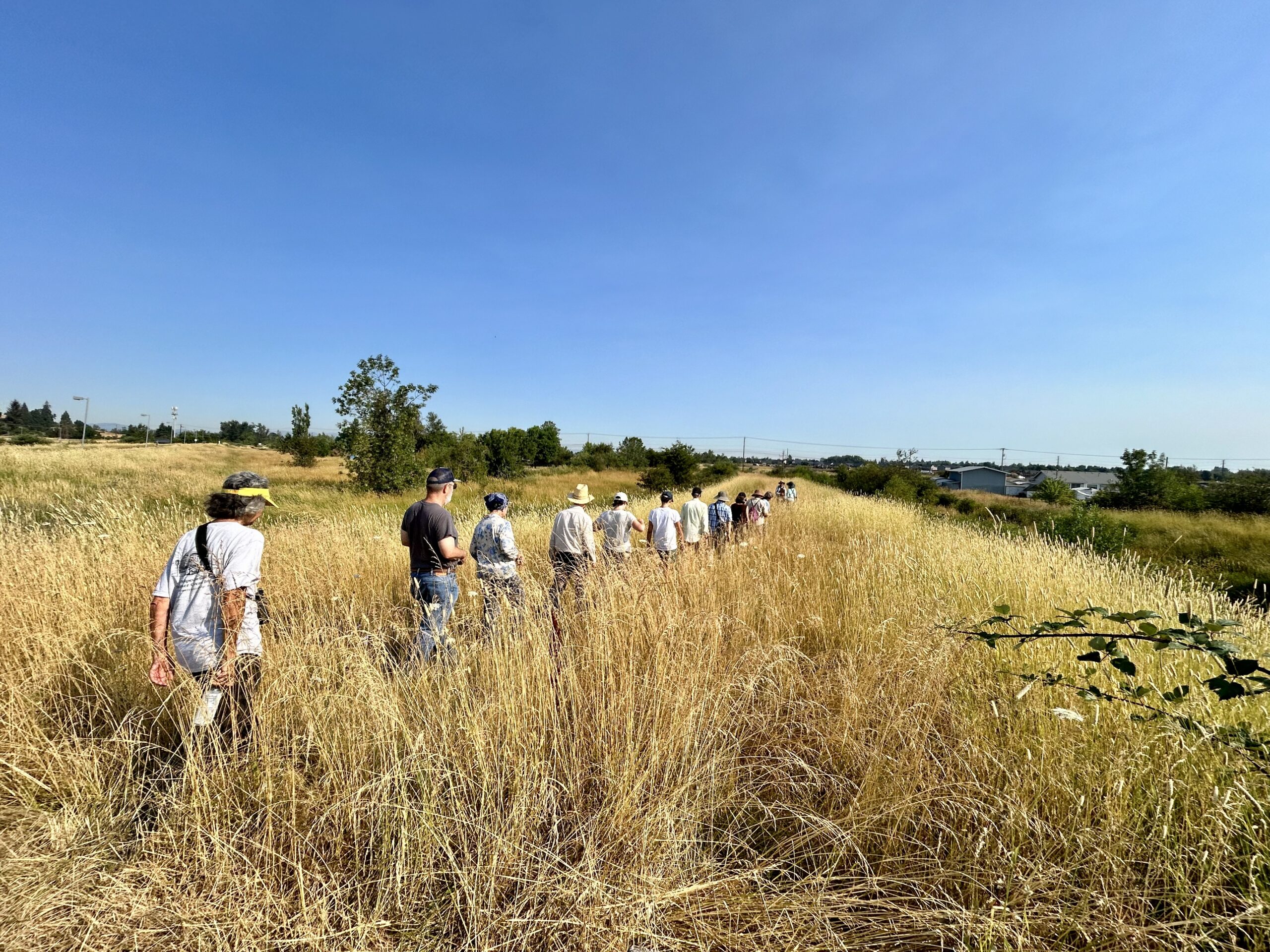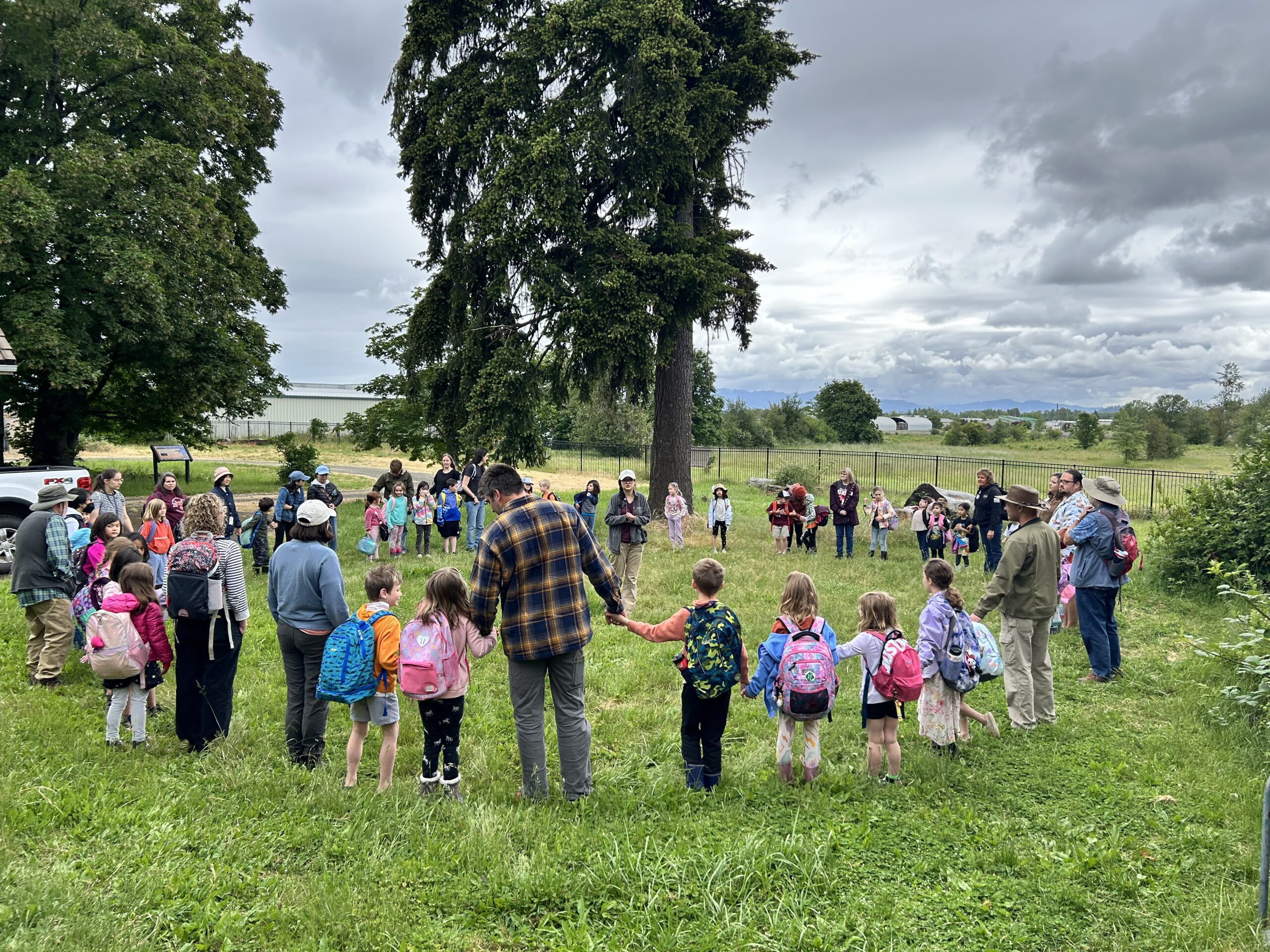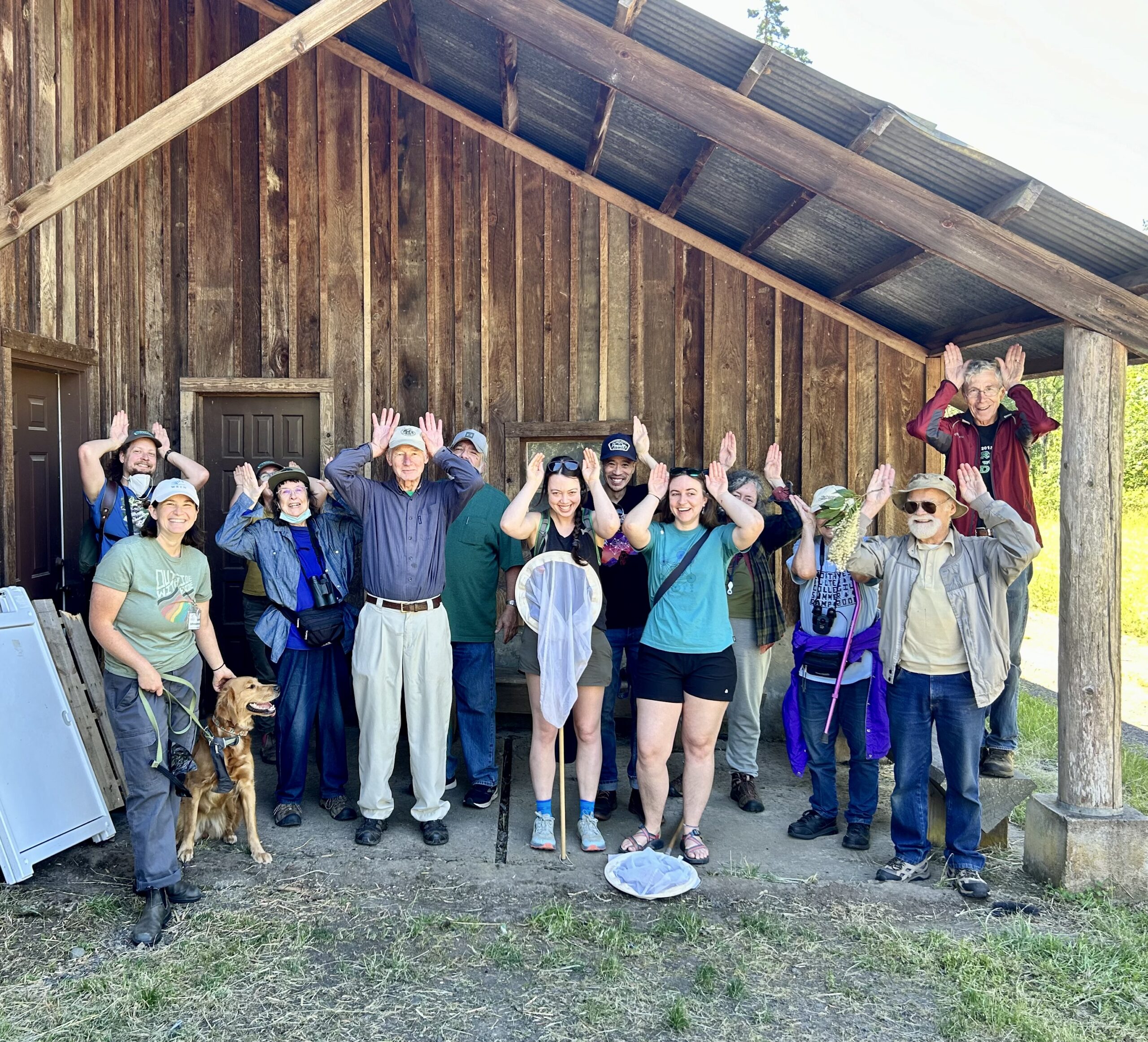Each summer for the last number of years, Willamette Resources and Educational Network (WREN) has partnered with Mt. Adams Institute and AmeriCorps to provide an internship in Environmental Education. This internship is intended to allow for learning and career growth opportunities for young adults in fields related to land stewardship, natural resource management, and environmental education.
WREN’s intern Nate Jensen has been kept busy with teaching and observation experiences, program development, community outreach, and working with partners such as the BLM on critical plant species field surveys. Read on for a full report of Nate’s experiences during the first half of his internship below!
Field Note 1
Background:
Since the beginning of May I have been completing an internship as an Environmental Educator with Willamette Resources and Educational Network (WREN). This internship is the result of a partnership between Mt. Adams Institute and funded by AmeriCorps placing young adults in positions to work in land stewardship and natural resource management, gaining hands-on learning opportunities and career development. I have been able to work on projects benefitting WREN while simultaneously obtaining experience and networking with other professionals in related fields.
WREN is an environmental education nonprofit located in the West Eugene Wetlands. The organization was born from the early efforts of passionate community members nicknamed “The Wet-heads” who understood the importance of the wetlands, other native habitats, and the species that call them home. In an effort to conserve the remaining 1% of the original wetland prairie and oak savanna habitats that historically blanketed the Willamette Valley, numerous agencies and organizations worked collaboratively to develop a plan for their protection and restoration. WREN has been a partner since the beginning and a bright leader in providing the community educational programming and resources for managing these critical habitats.
What I’ve Been Up To:
Right from the start, I’ve been able to jump in and get my feet wet (pun intended). In the first week, we had 3 classroom visits to a few schools teaching 3rd grade students about the local habitats and ecosystems in Eugene. I enjoyed seeing their excitement for these topics and observing how Rachel and Isabel fostered an inquiry-based learning environment. It was a great introduction into part of the work I will be doing for the next 6 months. A lot of my focus will be geared towards a program WREN has been developing called the Youth Land Stewards Education Program (YLSEP). I will also be assisting with WREN’s social media accounts, community events, some video projects, and more. Read on to hear about the specifics I have been involved with.
Teaching and Observing:
May and June were filled with ample learning opportunities and getting out of my comfort zone. I had the chance to log 27 hours observing and assisting in teaching WREN’s curriculum in the classroom and field trip settings to K-12 students. We covered topics including the role of pollinators, migration of birds, and the importance of watersheds. Students got to utilize scientific tools such as models, binoculars, magnifying glasses, and nature journals. It was a really insightful glimpse into the tremendously important work environmental educators play in helping stoke the interest of those who will be future land stewards and natural resource managers. I learned a lot about giving the students time and space to form their own hypotheses, share ideas with their peers, and apply what they learned through activities.
Teaching and classroom visits wrapped up in the middle of June with the end of the school year. I have been working hard putting together a video to recap YLSEP’s pilot year. This has been new and challenging for me figuring out how to use video editing software. It took a bit of time but I am pleased with how the project turned out and the new skills developed. I have been able to shift my focus to learning more about creating activities in line with our curriculum for the YLSEP program. It has been a fascinating process learning how to shape an activity in such a way that provides the intended learning results while meeting education standards and being age-level appropriate. One resource that I am pretty excited about having developed is a dichotomous key worksheet. I think it will be a nice addition to the lesson materials that teachers will have access to and fun for the students! More to come in this area as the summer progresses.
Getting to know the Community:
Among the many things that I am grateful for associated with this internship is the position it puts me in to be actively involved in the community. Having just moved to Eugene prior to the start of this internship, it has been so fun to meet many new people and experience what the community is about.
Each month WREN puts on a Wetland Wander. This is a guided walk through a local nature site with a specialist in any number of scientific fields. There is quite a dedicated core group that regularly show up and a few new participants each time. The enthusiasm they have for continued learning and passion for plants, birds, and nature is contagious. A couple of my personal favorite walks have been at Mt. Pisgah Arboretum with a local bat specialist and our last walk at Dragonfly Bend with an ecologist who works for the city. It is nice to know that the small part we play in facilitating community gatherings promotes learning and friendships.
A major highlight has been representing WREN at community events. In May, I got to table at the Mt Pisgah Wildflower Festival. This is a huge gathering of nonprofit organizations, nature enthusiasts, lovers of flowers, and local vendors. I was energized by people’s appreciation of the work we do as an environmental nonprofit and inspired by the efforts of many others in different areas of stewardship, education, outreach, and activism. Getting to meet new friends and share positive interactions while in a beautiful place filled my cup. This has been my experience at other events including tabling at We Are Bethel and our Family Exploration Days.
Field Work:
Before starting my internship, I didn’t know that this was going to be a part of what I got to participate in. I have been thrilled that it is included in my schedule! Sharing an office with the BLM has allowed me to rub shoulders with and learn about numerous careers related to land stewardship and natural resource management. Working with a BLM botanist, I have spent 50 hours in the field learning how to identify species of concern. This has included opportunities to develop field work skills like setting up transects, recording field data, GIS/GPS plot locating, and species identification.
In June, we spent multiple days surveying for the endangered Willamette Daisy. It is a beautiful little pale purple flower that is endemic to the Willamette Valley. Like many other native wet prairie plants, it has suffered from urban and agricultural development and competition from hardy invasive species. Historically, it benefited from natural fire events and indigenous land management practices. It has been rewarding to spend time surveying some of the populations around Eugene and learn about plans to ensure its continued presence.
First Half Wrap-Up:
I was elated upon discovering that I had been selected for this internship as an Environmental Educator with WREN. From the position description, interviews with WREN’s Education Director Isabel Justiniano, and participating in orientation trainings with Mt. Adams Institute, I knew that this was exactly the kind of experience that I was looking for. My expectations thus far have been exceeded! Experiences in the classroom teaching science concepts, learning about creating curriculum, and actively engaging the community through events has opened my eyes to ideas I want to pursue for a future career. There has been plenty of growth as I am encouraged to engage with curriculum development, social media management, and field work – all areas that I have not had previous experience. All along the way I have been met with encouraging feedback, support, and instruction. It’s been an awesome experience to be stretched and allowed to develop skills that will directly benefit me in the future all while serving my community!




